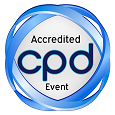
Liu Hsing-Yuan
Chang Gung University of Science and Technology, Taiwan
Title: A Delphi method to construct a competence indicator of gender in healthcare professional education
Biography
Biography: Liu Hsing-Yuan
Abstract
The prevailing gender bias and gender unawareness has been a suffering in our society. Since gender mainstreaming has become an important policy in Taiwan, we foresee challenges in health professional curriculum and gender equality education. The research design combines both quantitative and qualitative approaches. Purposive sampling will be used to select two medical technology colleges in north and central Taiwan. According six-step curriculum (self-understanding of gender, self and personal relationships of the gender and self-breaking competence indicators of gender equity education) developed by professionals at Johns Hopkins University in the United States, the research material from theories and studies, as well as local teaching practices will be derived. In the first year, a Delphi method was applied to construct the competence indicators of gender in health professional education. The second year, we revised the foundation of the study results of the first year to explore the effectiveness of learning and knowledge construction in health professional college students. In the third year, a large scale sample development and testing in Taiwan was done. The substantial research goals are the following: (a) to develop social justice-oriented service-learning curriculum, (b) to construct the competence indicators of gender for health professional education, connected with the upper secondary schools which has features of continuity, depth and stage specific, (c) to explore the learning effect from the gender course and (d) to develop the competence indicator scale of gender and teaching materials for health professional education. Therefore, the results will be useful reference for health professional education and gender education.

